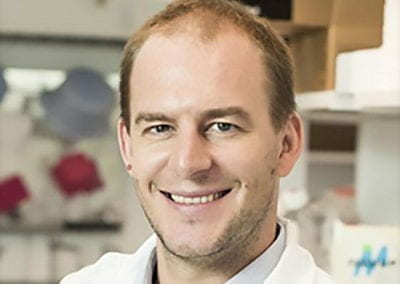Undergraduate Degree Program for the Nancy E. and Peter C. Meinig School of Biomedical Engineering
Biomedical engineering builds research around a quantitative understanding of the human body as an integrated, multiscale system. The study of mechanisms of disease through engineering analysis can be used to design better therapies, devices and diagnostic procedures to improve human health. The diversity of opportunities inherent in biomedical engineering and the access to the vast intellectual and facilities resources across Cornell and at its partner site at Weill Cornell Medicine in New York City make Cornell an exceptional place to earn a degree.
A critical component of every student degree program is active participation in the school’s research activity and its research goals could not be achieved without this participation. Undergraduate students from diverse majors participate in the biomedical engineering minor or take biomedical engineering courses and many of these students also make important contributions to the school’s research goals.
This bachelor of science degree program offers a comprehensive pallet of fundamental biomedical engineering knowledge, technical expertise, and professional skills essential for careers in biotechnology, medical device, and biomedical science careers. Our majors are also well prepared for follow-on graduate education in MD and/or PhD programs. We have tailored our program’s curricular, practice, and experiential training for four concentration areas well suited for current and emerging careers:
- Molecular/Cellular/Systems Engineering
- Biomaterials & Drug Delivery
- Biomedical imaging and instrumentation
- Biomechanics and Mechanobiology
As a BME major you will be part of a diverse community of life-long learners who are innovation confident, collaborative across disciplines, and community engaged. You will learn to be an intellectual and technical leader, ready to break the rules to advance human medicine and improve human health.
Outcomes
The BME major prepares you to bridge the engineering and medical fields, resulting in highly-flexible career prospects with opportunities in manufacturing, at universities, hospitals, government regulatory agencies and law firms, as well as the research facilities of companies and educational and medical institutions. Many graduates continue their studies in biomedical engineering in Masters of Engineering (M.Eng.) or Doctoral programs in a specific biomedical engineering concentration. A biomedical engineering major is also excellent preparation for entry into graduate study in medicine.
Master of Engineering Degree Program
Cornell’s M.Eng. degree is a one-year program that builds on your undergraduate foundation, expanding your knowledge and enhancing your career options. The focus of an M.Eng. degree is on engineering practice and design; that is, putting engineering knowledge to work developing new tools to address real-word problems in health science, learning both how to engineer solutions to health science challenges as well as what to engineer in terms of a product’s market viability. Our M.Eng. programs accomplish this through a combination of courses and a design project that ensure each student has broad knowledge as well as focused expertise in a particular area.
SOME AREAS OF FACULTY RESEARCH
- bioactive materials design
- body-on-a-chip
- cellular imaging
- living tissue engineering
- micro- and nano-biotechnology
- multi-scale systems modeling
- physics of cancer
Biomedical Engineering by the Numbers
Number of Biomedical Engineering undergraduate students: 121
Starting salaries of B.S. biomedical engineering graduates (2021):
- Median salary: $70,000
- High salary: $87,500
Post-graduate plans for biomedical engineering graduates at the time of graduation (2021):
- Employed 35%
- Attending Graduate School 47%
- Seeking Admission to Graduate School 9%
- Employment 6%
- Other 3%






























